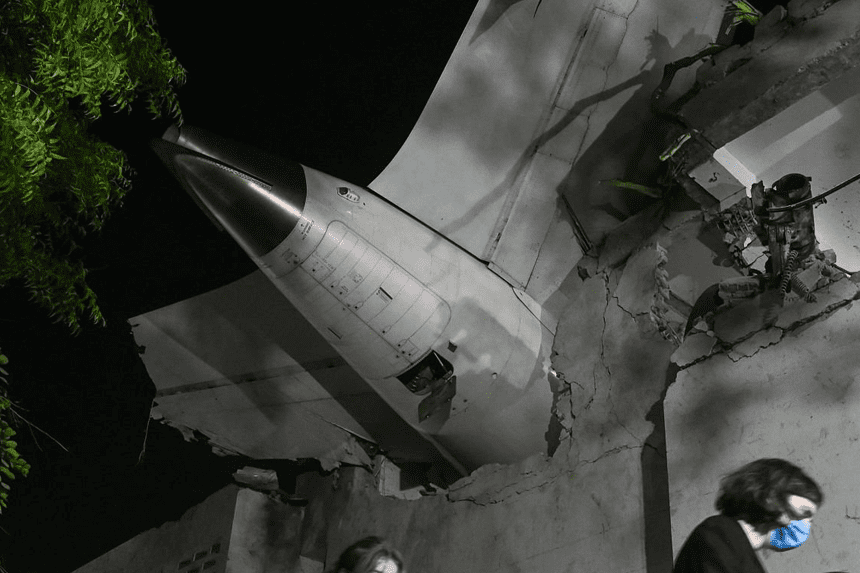The tragic Air India tragedy in Ahmedabad has spurred a close examination of Boeing, one of the biggest aircraft manufacturers worldwide. Renowned for its high-performance aircraft, Boeing today comes under further criticism for its crisis management and safety policies. The tragedy has already affected public confidence and market performance, even if the first reports do not reveal a manufacturing flaw. The Air India crash impact on Boeing might redefine Boeing’s brand while investigations are in progress, and investor pressure is increasing. This event adds to the continuous difficulties the aviation behemoth faces; hence, the road to recovery gets more difficult.
- What Makes This Air India Crash Different from Past Boeing Incidents?
- Should Boeing bear responsibility for the crash?
- How has Boeing reacted publicly?
- Regarding Boeing’s finances, what is their present situation?
- What more general safety issues that affect Boeing?
- Why Does Boeing Need Public Trust So Much?
- How did the Legal System Address Previous Boeing Incidents?
- Internally, what improvements has Boeing made?
- What does this incident mean for the 787 Dreamliner?
- How will this incident affect the airline sector?
- Is Boeing able to rebuild its market share?
- Boeing’s Future: What Path Lies Ahead
What Makes This Air India Crash Different from Past Boeing Incidents?
When an Air India aircraft crashed in Ahmedabad, tragedy struck, and what had been an extraordinary safety record for Boeing’s 787 Dreamliner was shattered. Celebrating almost a billion passengers since its introduction just 14 years ago, this model has been a mainstay of intercontinental travel until now. Nevertheless, regardless of the cause of the disaster, Boeing is probably going to suffer greatly from the Air India incident.
Unlike the Boeing 737 Max, which was grounded worldwide following fatal crashes in 2018 and 2019, the Dreamliner has not been involved in such terrible occurrences. Early crashes connected to a software flaw spurred worldwide regulatory reviews. In this scenario, investigations are still in progress even though there is no clear indication of a mechanical or software flaw.
Should Boeing bear responsibility for the crash?
Right now, Boeing has not uncovered any flaws. According to aviation experts, manufacturing defects are rare today and usually do not lead to fatal events. Many times, nevertheless, these kinds of incidents result from human mistakes. Still, definite answers will remain unattainable until the black boxes of the jet are found and examined. Public opinion and market sensitivity mean that Boeing’s Air India crash impact may still be considerable.
How has Boeing reacted publicly?
Boeing said in a statement expressing sympathy and attesting to its collaboration with Indian officials and Air India. The company underlined its will to guarantee openness and assist the research. Its CEO underlined again the company’s strongest sympathies for the crew, passengers, and their families.
Still, Boeing’s shares fell almost 5% by market close in New York despite these remarks. The decline emphasizes how erratic aircraft equities are following events involving safety concerns.
Regarding Boeing’s finances, what is their present situation?
The disaster accentuates Boeing’s already increasing list of operational and financial difficulties. The corporation lost around a billion dollars monthly last year alone. Failures in quality control, a protracted workers’ strike, and settlements following past accidents all played a part in this drop.
Boeing paid $160 million earlier this year following a door separating mid-flight on an Alaska Airlines aircraft. Before that, the company had settled with Southwest Airlines for $428 million for losses related to the 737 Max grounding. Investor trust suffers with every fresh event, underscoring once more the Air India accident on Boeing.
What more general safety issues that affect Boeing?
For some years, Boeing’s safety procedures have been under close examination. Internal whistleblowers claimed in 2019 that the corporation sacrificed safety in order to satisfy manufacturing targets. One former quality manager claimed that aircraft were purposely fitted with inferior parts. Boeing refuted these allegations, but further investigation was prompted by the whistleblower’s suicide later on.
An engineer working for another company claimed he was bullied after voicing safety concerns. Boeing responded by noting a 500% rise in internal safety reports since January—an indication of a better corporate culture—and said reprisal is forbidden.
Why Does Boeing Need Public Trust So Much?
In commercial aviation, brand confidence is crucial. At 30,000 feet, airlines have to ensure that their passengers are secure. Even in the absence of mechanical failure, the Air India crash impact on Boeing may rekindle passenger uncertainty. Public opinion is prone to change rapidly, particularly following a major incident.
Airlines have few choices as Boeing and Airbus rule the aircraft market. Still, more inspection can influence carrier decisions and regulatory schedules, therefore impacting production and sales. Here is the link to our article on the Boeing Workers Strike
How did the Legal System Address Previous Boeing Incidents?
The legal aftermath of past Boeing accidents is still developing. By reaching an agreement with the Department of Justice, the corporation averted criminal charges in the United States. Boeing agreed to pay over $1.1 billion in fines and acknowledged to interfering with a federal probe as part of the deal. Families of the crash victims expressed discontent, citing a too-generous payment.
These events highlight Boeing’s long-term Air India crash in ethical as well as legal spheres. They also highlight how the aviation behemoth still revolves mostly around responsibility.
Internally, what improvements has Boeing made?
Leadership changes have matched the company’s recent challenges. Kelly Ortberg, the new CEO, left retirement to help Boeing regain stability and credibility. Though many experts remain wary, the corporation says it has enhanced operational safety and internal reporting policies.
Ortberg must revive internal morale as well as reestablish outside confidence. Reaching both will be crucial to control the consequences of the present disaster.
What does this incident mean for the 787 Dreamliner?
Up to this, the Dreamliner has been a representation of dependability and creativity. Its role in the Air India catastrophe could throw off that view. Though the aircraft is still a wonder of modern engineering, even one significant crash can redefine its legacy.
Aviation experts underline that final decisions should not be taken yet. Clearer responses will show up once the inquiry ends. Still, the Air India crash affects Boeing in such a way that the Dreamliner demand may suffer.
How will this incident affect the airline sector?
Usually, the consequences of a plane crash go beyond the manufacturer. Airlines running the same strategy may find slower bookings and more inspections. Regulators might add fresh monitoring rules, and pilot training programs might be reviewed.
For Boeing, this might mean postponed deliveries and more production scrutiny. Tight margins and intense competition mean that even small disturbances could have significant financial effects.
Is Boeing able to rebuild its market share?
Public and investor confidence is never easy to rebuild. Boeing has, however, experienced difficulty before and recovered. This time, the route could be more convoluted. Boeing’s Air India crash impact exposes ingrained problems, including safety, corporate culture, and leadership.
Transparency will be absolutely important going ahead. Boeing has to be transparent with the public, regulatory, and investigative agencies. Early communication and concrete changes can help to restore its reputation.
Boeing’s Future: What Path Lies Ahead
The coming months will be crucial for Boeing as the black box investigation may either clear its name or intensify the Air India crash on Boeing. In the meantime, the company must manage legal responsibilities, financial pressure, and reputational damage. If handled carefully, this moment could become a turning point, allowing Boeing to demonstrate accountability and renewed commitment to safety. The Air India crash impact on Boeing stands as both a warning and a wake-up call. Ultimately, Boeing’s future depends not just on profit or innovation, but on restoring public trust in its ability to ensure safe global travel.








